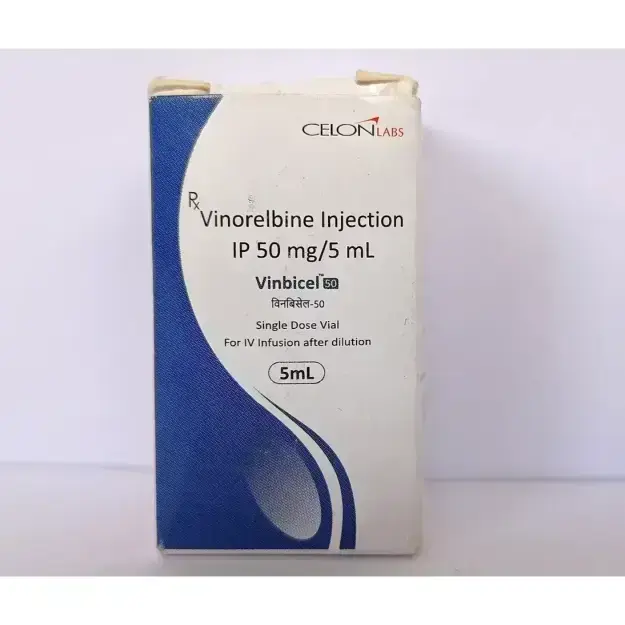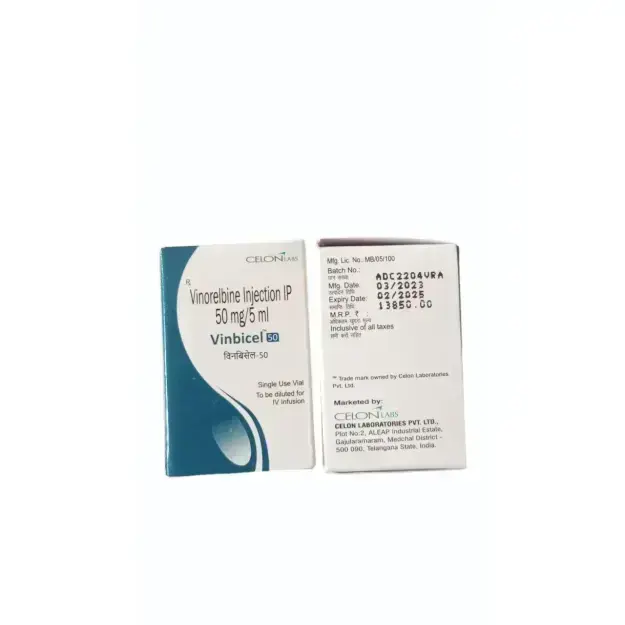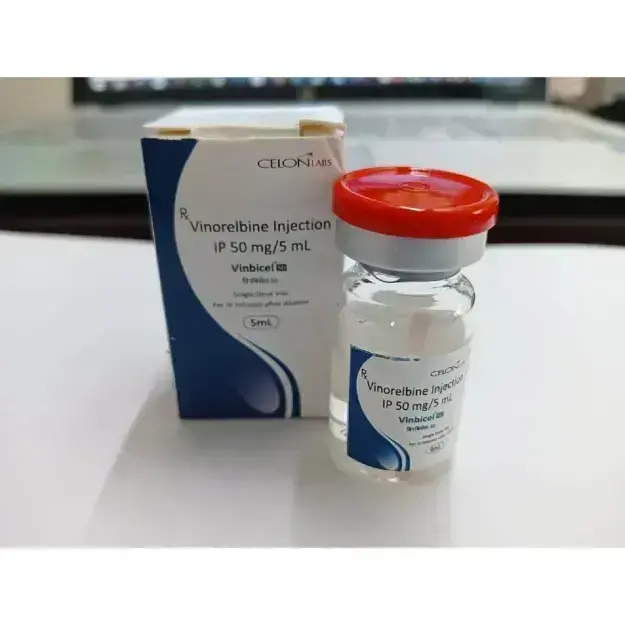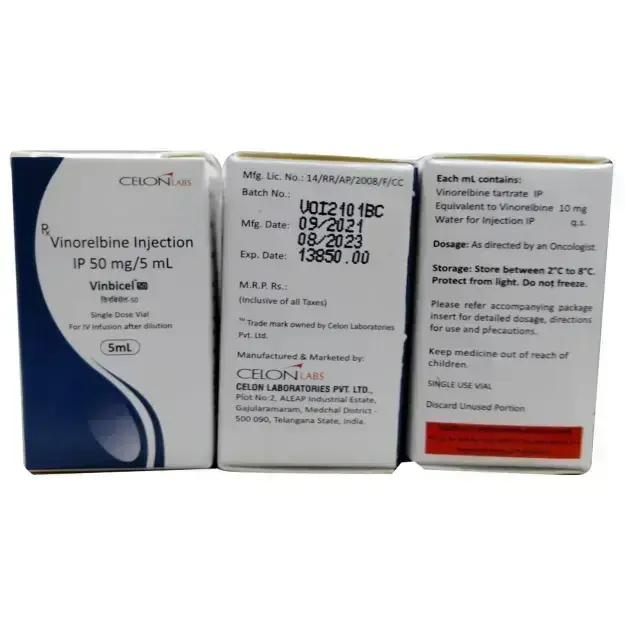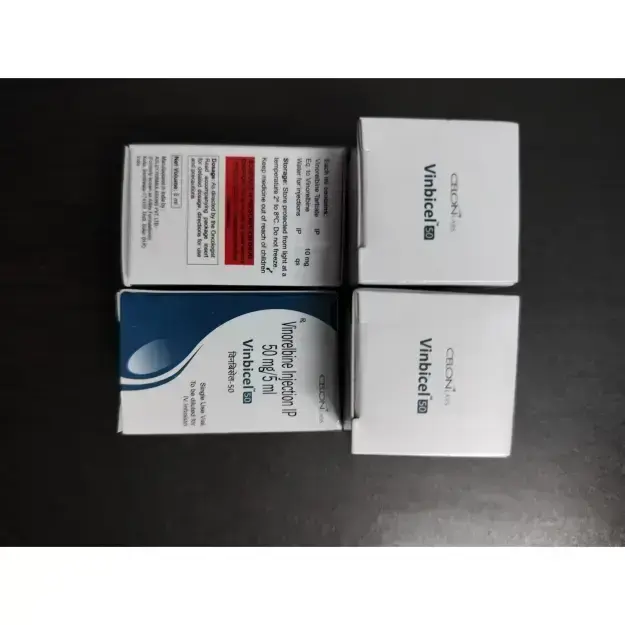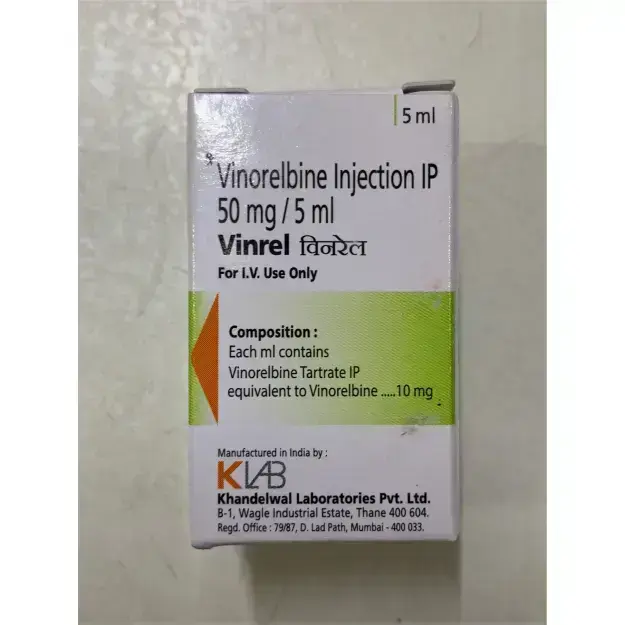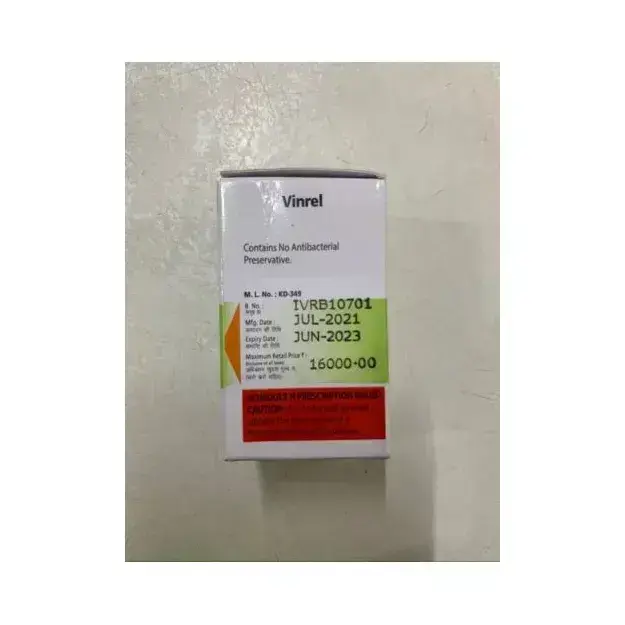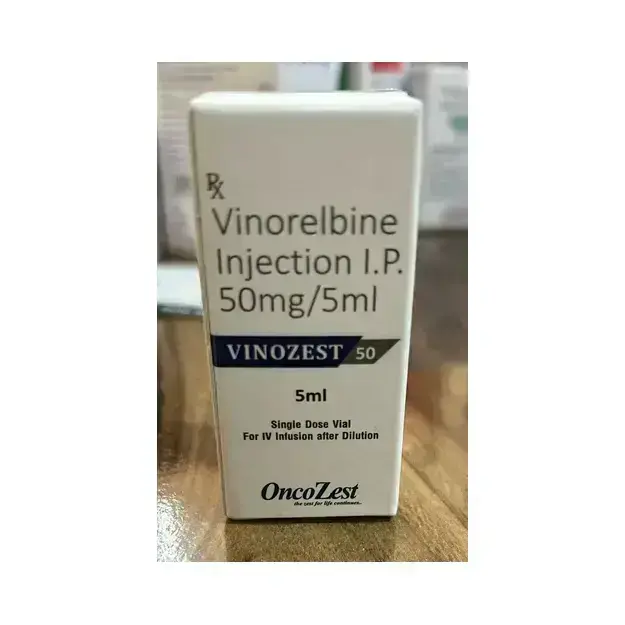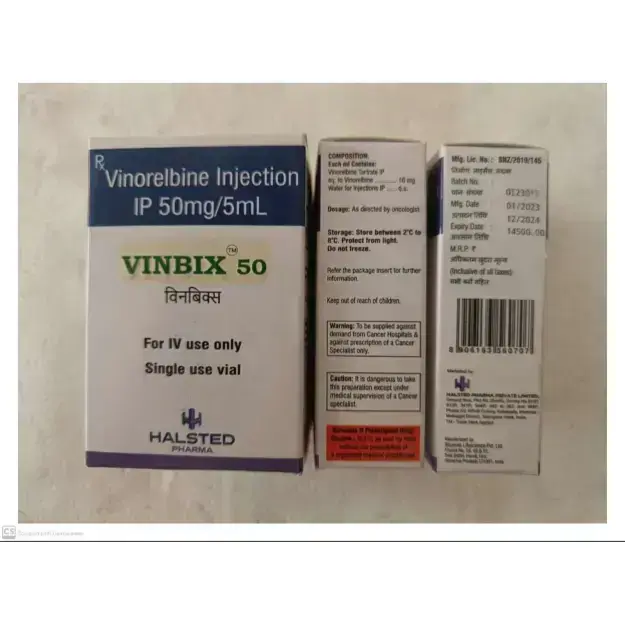Vinbicel contains Vinorelbine, is a vinca alkaloid chemotherapy drug derived from the Madagascar periwinkle plant (Catharanthus roseus). It is primarily used for the treatment of lung cancer, breast cancer, and other solid tumors. Vinorelbine works by inhibiting microtubule polymerization, leading to cell cycle arrest and apoptosis of cancer cells. Vinorelbine is commonly used alone or in combination with other chemotherapy agents such as cisplatin, carboplatin, and gemcitabine for enhanced therapeutic efficacy. Vinorelbine remains an essential chemotherapy agent for lung cancer and metastatic breast cancer, offering significant survival benefits with a manageable toxicity profile.
Mechanism of Action
Vinorelbine functions as a mitotic inhibitor by targeting tubulin proteins essential for microtubule formation. This results in the disruption of mitotic spindle formation, preventing cell division and inducing programmed cell death (apoptosis) in rapidly dividing cancer cells.
Key Mechanisms:
Microtubule Inhibition – Binds to tubulin and prevents microtubule polymerization, causing mitotic arrest.
Apoptosis Induction – Triggers programmed cell death in rapidly dividing cancer cells.
Angiogenesis Inhibition – Reduces the formation of new blood vessels that nourish tumors.
Indications and Uses
1. Lung Cancer
Non-Small Cell Lung Cancer (NSCLC):
- Used as monotherapy or in combination with cisplatin or carboplatin in first-line and second-line treatment.
- Improves survival rates and symptom control in advanced/metastatic NSCLC.
2. Breast Cancer
Metastatic Breast Cancer (MBC):
- Used as second-line therapy for hormone-resistant or anthracycline/taxane-refractory breast cancer.
- Often combined with trastuzumab for HER2-positive cases.
3. Ovarian Cancer
- Used in platinum-resistant ovarian cancer when other treatments fail.
4. Other Indications
- Head and Neck Cancers – Used as part of combination chemotherapy.
- Bladder Cancer – Investigated in combination regimens.
- Soft Tissue Sarcomas – Occasionally used in refractory cases.
Dosage and Administration
Vinorelbine is available in IV and oral formulations.
| Indication |
Typical Dose |
Frequency |
| NSCLC (Monotherapy) |
25-30 mg/m² IV |
Weekly |
| NSCLC (With Cisplatin) |
25 mg/m² IV |
Days 1 and 8 of a 3-week cycle |
| Metastatic Breast Cancer |
25 mg/m² IV |
Weekly |
| Oral Vinorelbine |
60 mg/m² PO |
Days 1 and 8 of a 3-week cycle |
Dose Adjustments Required for:
- Liver Dysfunction – Reduce dose in hepatic impairment.
- Neutropenia – Hold or reduce dose if absolute neutrophil count (ANC) < 1,500/mm³.
- Elderly Patients – Monitor closely for toxicity.
Efficacy and Clinical Studies
1. Non-Small Cell Lung Cancer (NSCLC)
Vinorelbine + Cisplatin shows a 10-15% improvement in overall survival compared to vinorelbine alone.
Combination therapy increases 1-year survival rates to ~35-40%.
Better tolerability than taxane-based regimens with lower neuropathy incidence.
2. Breast Cancer
Vinorelbine + Trastuzumab improves progression-free survival in HER2-positive metastatic breast cancer.
Monotherapy shows response rates of ~25% in heavily pretreated patients.
3. Ovarian Cancer
Used in platinum-resistant cases with moderate response rates (~15-20%).
Side Effects and Toxicity
Common Side Effects:
Neutropenia (Low White Blood Cells) – Most common dose-limiting toxicity.
Fatigue – Generalized weakness and tiredness.
Gastrointestinal Issues – Nausea, vomiting, constipation.
Alopecia (Hair Loss) – Less severe than other chemotherapy drugs.
Mild Neuropathy – Peripheral tingling or numbness.
Serious Side Effects:
Severe Neutropenia – Increased infection risk, requires monitoring.
Hepatotoxicity – Liver enzyme abnormalities in some patients.
Interstitial Lung Disease (Rare) – May cause pulmonary toxicity in susceptible individuals.
Fatal Toxicity:
Accidental Intrathecal Administration – Contraindicated; may cause fatal neurotoxicity.
Severe Myelosuppression – Requires dose modification or discontinuation.
Contraindications and Precautions
Contraindications:
Severe neutropenia (ANC < 1,500/mm³).
Severe hepatic dysfunction – Risk of drug accumulation.
Pregnancy & Breastfeeding – Teratogenic and harmful to infants.
Precautions:
Monitor Blood Counts: Adjust dose based on neutropenia.
Avoid in Severe Liver Disease: Increased toxicity risk.
Careful Use in Elderly Patients: Higher susceptibility to side effects.
Drug Interactions
Vinorelbine is metabolized by the CYP3A4 enzyme, leading to multiple drug interactions.
| Interacting Drug Class |
Effect |
| CYP3A4 Inhibitors (Ketoconazole, Erythromycin, Itraconazole) |
Increase toxicity (neutropenia, hepatotoxicity). |
| CYP3A4 Inducers (Rifampin, Carbamazepine, Phenytoin) |
Reduce efficacy by increasing drug metabolism. |
| Platinum-Based Drugs (Cisplatin, Carboplatin) |
Increase myelosuppression risk. |
| Other Chemotherapy Agents (Paclitaxel, Gemcitabine) |
Increase overall toxicity. |
Storage and Handling
Storage Conditions:
Store at 2-8°C (Refrigerated).
Protect from light exposure.
Do not freeze.
Safe Handling:
Vinorelbine is a cytotoxic drug – handle with gloves and protective equipment.
Proper disposal as per hazardous waste regulations.
X

